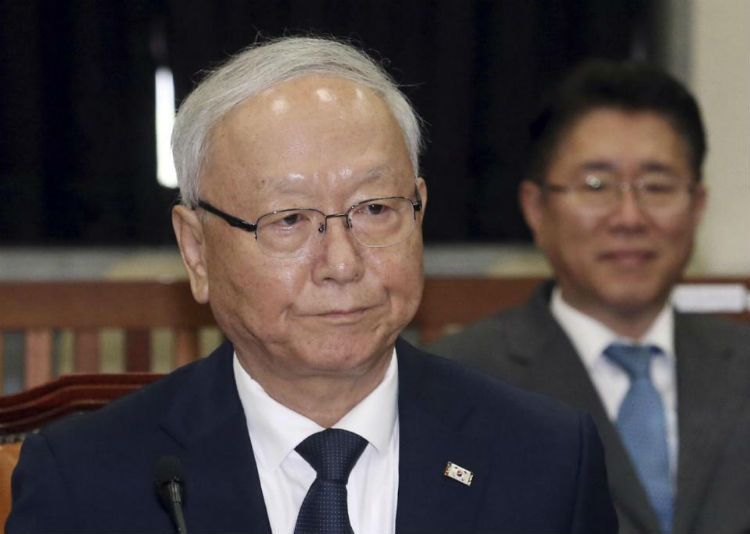South Korean chief intelligence officer: 35 intelligence agencies bought spyware from Hacking Team

According to the Associated Press, the head of the National Intelligence Service of South Korea, Lee Byeon Ho, confessed to buying software to intercept messages in messengers (mainly in Asia’s Kakao Talk).
This recognition was made by Lee Byoung Ho at a closed briefing for members of the country's parliament (one of whom later told reporters about it). According to the head of the intelligence service, the Italian cyber group Hacking Team acted as a seller of spyware that allows you to intercept information from mobile phones and computers (recently she herself was the victim of a massive hack ). The fact of negotiations with the Hacking Team is confirmed by the correspondence archive posted on WikiLeaks.
')

Lee Byeon-ho
According to a senior intelligence officer, spyware was bought in 2012 to counter North Korean hackers, which Seoul periodically accuses of breaking its computer networks and stealing information.
In the statement that spyware will not be used to spy on fellow citizens, but only to counter external threats, not everyone believed. The confessions of the head of the Intelligence Service provoked a scandal in South Korea, since the agency had previously been found to spy on the country's citizens (for example, illegally recording telephone conversations of members of the political elite, business representatives and the media). The two previous heads of the National Intelligence Service are currently serving prison sentences for such violations.
Lee Byung-ho also said that according to his data, programs purchased by the South Korean intelligence service are also used by 97 national security agencies in 35 countries around the world.
Representatives of the Kakao Talk messenger, which in South Korea at least once a month use 38 million people, said that the chat service servers had never been hacked. However, Lee Byeon Ho said at a briefing that his department was acquiring spyware software that allows it to penetrate mobile devices without the need to hack the servers themselves.
Earlier in the press got information that the hacking of mobile communication was engaged, in particular, the NSA. We also published technical details of the history of tapping Ukrainian subscribers, allegedly carried out from the territory of Russia.

At conferences on information security, Positive Technologies researchers also demonstrated the results of a study on the security of 4G communications and SIM cards (they can also be hacked ).
In addition, during the Positive Hack Days forum held in Moscow in May, a competition was also held on hacking MiTM Mobile mobile communications - we published an analysis of his assignments in Habré ( here you can watch the webinar recording on this topic).
Source: https://habr.com/ru/post/262775/
All Articles